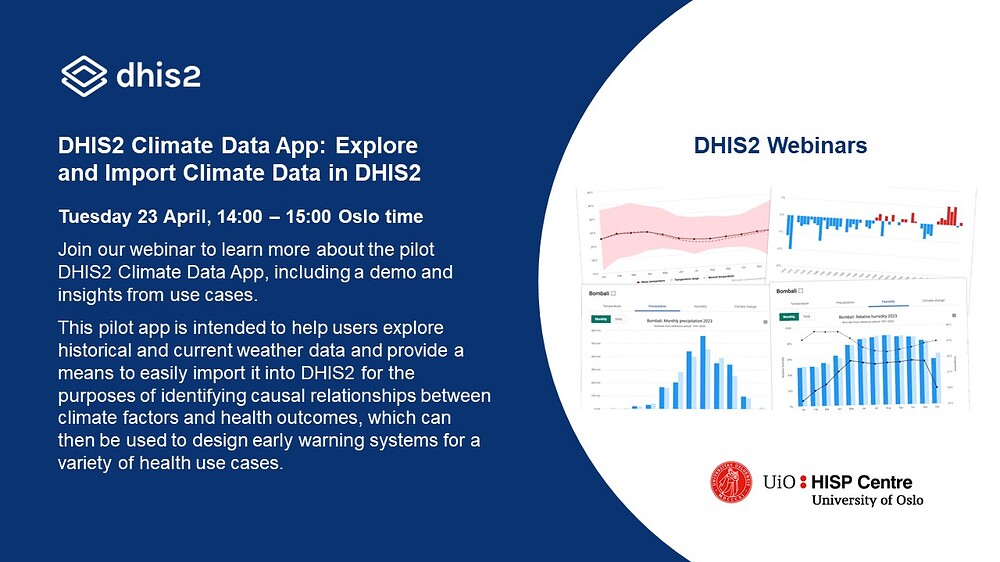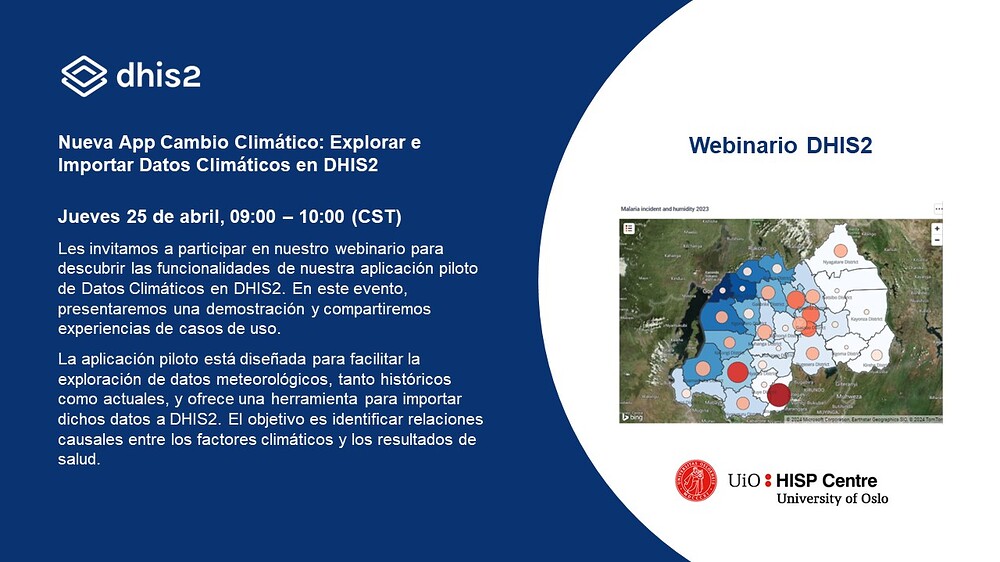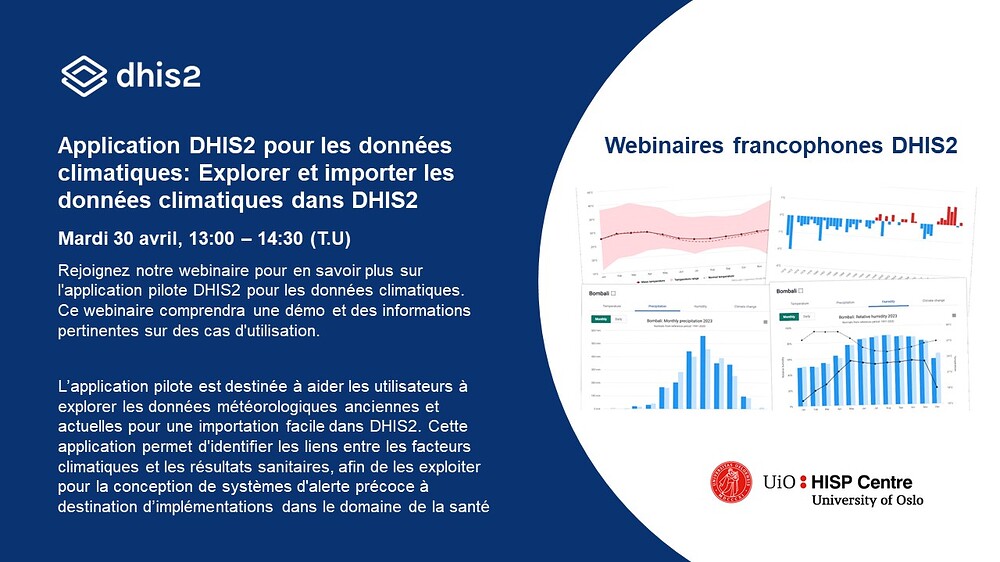Webinar on the DHIS2 Climate Data App: Explore and Import Climate Data in DHIS2
Join us for a webinar on Tuesday 23 April at 14:00 CEST to learn more about the the pilot DHIS2 Climate Data App, including a demo and insights from use cases.
This pilot app is intended to help users explore historical and current weather data and provide a means to easily import it into DHIS2 for the purposes of identifying causal relationships between climate factors and health outcomes, which can then be used to design early warning systems for a variety of health use cases. Register here to join us at the webinar!
You can also read the full announcement on the DHIS2 Community of Practice for more information and instructions on installing and using the app, and let us know if you have questions or comments at climate-app@dhis2.org
Próximo webinario - Nueva App Cambio Climático: Explorar e Importar Datos Climáticos en DHIS2
Les invitamos a participar en nuestro webinario, el jueves 25 de abril , 09:00 – 10:00 (CST), para descubrir las funcionalidades de nuestra applicación piloto de Datos Climáticos en DHIS2. En este evento, presentaremos una demostración y compartiremos experiencias de casos de uso.
La aplicación piloto está diseñada para facilitar la exploración de datos meteorológicos, tanto históricos como actuales, y ofrece una herramienta para importar dichos datos a DHIS2. El objetivo es identificar relaciones causales entre los factores climáticos y los resultados de salud. Registrase aquí!
Prochain webinaire sur l’Application DHIS2 pour les données climatiques: Explorer et importer les données climatiques dans DHIS2**
Rejoignez notre webinaire le mardi 30 avril, 14:00-15:30 pour en savoir plus sur l’application pilote DHIS2 pour les données climatiques. Ce webinaire comprendra une démo et des informations pertinentes sur des cas d’utilisation.
L’application pilote est destinée à aider les utilisateurs à explorer les données météorologiques anciennes et actuelles pour une importation facile dans DHIS2. Cette application permet d’identifier les liens entre les facteurs climatiques et les résultats sanitaires, afin de les exploiter pour la conception de systèmes d’alerte précoce à destination d’implémentations dans le domaine de la santé. Inscriptions ICI!


